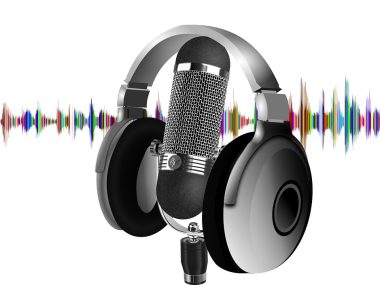This article was developed via a partnership with BetterHelp.
When you hear the term “impulse control disorder,” you might think of something like Attention-Deficit/Hyperactivity Disorder or ADHD. While ADHD often comes with a lack of impulse control, it does not fall under the umbrella of impulse control disorders. In this article, we’ll go over exactly what these disorders are, their causes, and their treatment options.
What Are Impulse Control Disorders?
The most significant characteristic of impulse control disorders is a chronic inability to maintain self-control. This lack of self-control creates extreme disruptions in many parts of life, including:
- Personal life
- Social life
- Academic life
- Familial life
- Professional life
Kids, teenagers, and adults who have impulse control disorders often behave in repetitive, destructive ways even though they experience negative consequences as a result. The reality is that those living with this type of disorder don’t have the skills they need to regulate their behaviour and emotional responses.
Impulse control disorders must be treated. Even when people living with these disorders genuinely wish to take control of their thoughts, feelings, and behaviours, they often find it extremely challenging or even impossible to do so. The urges to engage in destructive behaviour are all-consuming and overwhelming. For more articles on impulse control disorders, click here.
Types of Impulse Control Disorders
There are four main types of impulse control disorders explained below. Aside from these, pathological gambling, compulsive eating, and compulsive shopping are also considered impulse control disorders, and there are several others as well.
Intermittent Explosive Disorder
The intermittent explosive disorder is the most commonly diagnosed impulse control disorder. Its main symptom is recurrent outbursts, both emotional and physical. These outbursts can be aggressive. They’re often preceded by extreme tension and followed up by embarrassment and remorse.
Pyromania
People living with pyromania have an unhealthy fascination with fire and deliberately set fires to relieve internal tension. They gain gratification and pleasure from setting fires and witnessing their effects.
Kleptomania
Those with kleptomania possess an irresistible and repetitive impulse to steal and sometimes hoard items. In many cases, people with this disorder know that what they’re doing isn’t right and doesn’t make any sense, but they’re powerless to stop. Usually, the items that those with kleptomania steal aren’t necessities.
Like intermittent explosive disorder, people living with kleptomania experience intense tension leading up to the theft. After they’ve completed the theft, they usually feel relief, gratification, and pleasure.
A common misconception is that people with kleptomania are expressing feelings of vengeance and anger when they steal. This is not the case. It’s also not true that the thefts occur due to delusions or hallucinations.
Compulsive Sexual Behavior
The final impulse control disorder is compulsive sexual behaviour. The hallmark of this disorder is uncontrollable excessive thoughts about sexual activity, sometimes accompanied by an insatiable and irresistible need to participate in sexual behaviours. These thoughts and urges can become so all-consuming as to keep people from functioning normally in day-to-day life.
Possible Causes and Risk Factors
What causes impulse control disorders? Unfortunately, professionals aren’t sure; they haven’t been able to pinpoint a specific cause for these disorders. The consensus among psychiatric professionals is that there are many contributing factors, including genetic, environmental, and physical. There are also several risk factors that make it more likely for a person to develop impulse control disorders.
Risk factors include being young, being a male, and being a survivor of abuse and neglect. Others are:
- Chronic exposure to violence and aggression
- A family history of mental illness
- Pre-existing mental illnesses
- A personal or family history of drug and alcohol abuse and addiction
Treatment Options
Like many other mental health disorders, impulse control disorders are typically treated with various types of therapy, medication, or a combination of both. There are also some less traditional treatment options for these types of disorders.
CBT
Cognitive behaviour therapy, or CBT, is usually very effective in treating impulse control disorders. CBT has a clear focus on the relationship between thoughts, emotions, and behaviours. It emphasizes the power of changing your thoughts to change your emotions and thus your behaviours, helping those with impulse control disorders regain control.
Group Therapy/Support Groups
Group therapy and support groups bring together multiple people with the same mental health disorder. This allows them to talk about their challenges, get support and understanding from others, and celebrate their wins in a group setting. The support of other group members can be extremely beneficial for those working through impulse control disorder treatment.
Interpersonal Therapy
Interpersonal therapy dives deep into the emotions that come along with the thoughts that play a part in impulse control disorder. It’s similar to CBT, but instead of focusing on thoughts, interpersonal therapy addresses previously hidden emotional problems that contribute to the loss of control of impulses. It helps people understand exactly why they behave destructively, and this knowledge and understanding helps them resist acting that way in the future.
Biofeedback
Biofeedback is a less traditional intervention, but it is another way to help those with impulse control disorder. It monitors heart rate, breathing rate, and other body functions while the person who has impulse control disorder practices various relaxation methods. Biofeedback aims to teach them how to control these functions by relaxing and calming their anxiety as they experience impulsive thoughts and urges.
Medication
Medication is sometimes used with other treatments to help those with impulse control disorder. It’s very important to always speak with a doctor or mental health professional before starting any medication.
Conclusion
We hope this article helped you learn more about impulse control disorders, what causes them, and how they’re treated. If you or a loved one is living with an impulse control disorder, don’t hesitate to reach out to get the help you deserve! You’re never alone, and things can get better.





